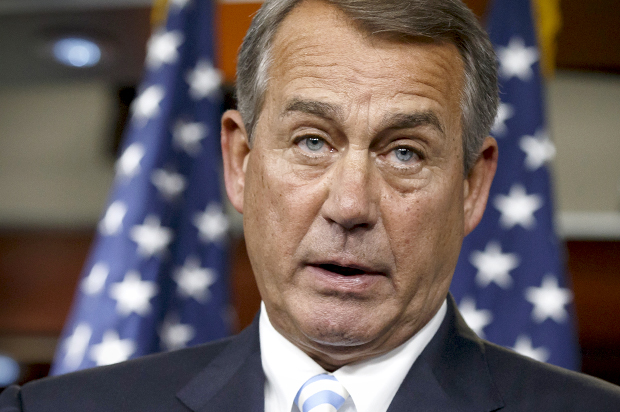The "reform" measure makes room for
industry-funded experts on the EPA's advisory board
 Congressional climate wars were dominated Tuesday by the U.S. Senate, which spent the day debating, and ultimately failing to pass,
a bill approving the construction of the Keystone XL pipeline. While
all that was happening, and largely unnoticed, the House was busy doing
what it does best: attacking science.
Congressional climate wars were dominated Tuesday by the U.S. Senate, which spent the day debating, and ultimately failing to pass,
a bill approving the construction of the Keystone XL pipeline. While
all that was happening, and largely unnoticed, the House was busy doing
what it does best: attacking science.H.R. 1422, which passed 229-191, would shake up the EPA’s Scientific Advisory Board, placing restrictions on those pesky scientists and creating room for experts with overt financial ties to the industries affected by EPA regulations.
The bill is being framed as a play for transparency: Michael Burgess, (r-Texas), argued that the board’s current structure is problematic because it “excludes industry experts, but not officials for environmental advocacy groups.” The inclusion of industry experts, he said, would right this injustice.
But the White House, which threatened to veto the bill, said it would “negatively affect the appointment of experts and would weaken the scientific independence and integrity of the SAB.”
In what might be the most ridiculous aspect of the whole thing, the bill forbids scientific experts from participating in “advisory activities” that either directly or indirectly involve their own work. In case that wasn’t clear: experts would be forbidden from sharing their expertise in their own research — the bizarre assumption, apparently, being that having conducted peer-reviewed studies on a topic would constitute a conflict of interest. “In other words,” wrote Union of Concerned Scientists director Andrew A. Rosenberg in an editorial for RollCall, “academic scientists who know the most about a subject can’t weigh in, but experts paid by corporations who want to block regulations can.”
Speaking on the House floor Tuesday, Rep. Jim McGovern, D-Mass., summed up what was going on: “I get it, you don’t like science,” he told bill sponsor Chris Stewart, (r-Utah). “And you don’t like science that interferes with the interests of your corporate clients. But we need science to protect public health and the environment.”
The House, alas, is staying the course, voting this week on two other bills aimed at impeding the EPA, including one that prevents the agency from relying on what it calls “secret science” in crafting its regulations — but which in reality, opponents argue, would effectively block the EPA from adopting any new rules to protect public health. The trio, wrote Rep. Eddie Bernice Johnson, D-Texas, in an editorial for the Hill, represents “the culmination of one of the most anti-science and anti-health campaigns I’ve witnessed in my 22 years as a member of Congress.”
The White House has threatened to veto all three.

 by
Lindsay Abrams
by
Lindsay Abrams
No comments:
Post a Comment